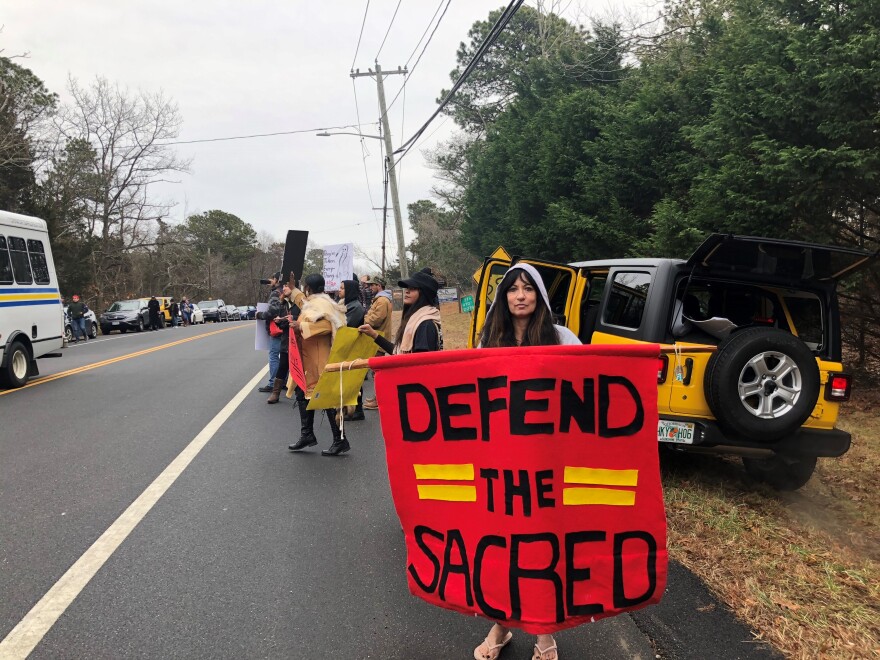Indigenous tribes in New York have condemned Governor Kathy Hochul’s decision to veto a bill that would have protected unmarked graves.
The governor vetoed the Unmarked Burial Site Protection Act bill last month after the legislature passed it with near unanimous support. The bill would have protected the unmarked burial sites from desecration by private developers. As current federal and state laws do not apply to lands held privately.
The bill would have protected Native burial sites, African Americans and Revolutionary War veterans. New York is one of only three states to not have a law that completely protects the remains of Indigenous people and others from desecration and destruction.
The Shinnecock Graves Protection Warrior Society issued a joint statement Monday in response to the veto. In the statement, leaders said Hochul is the only person standing in the way of the passage of the bill.
“This is yet another slap in the face in line with centuries of brutal settler colonialism and violent land theft. But we will persevere in our fight to preserve our lands from desecrating developers. We will continue to do what is necessary to protect our sacred burial sites and consecrated remains, which is something we’ve been doing since long before New York was even a state,” they said.
The bill proposed the creation of a committee, including an archeologist that is designated by the state, involved in the process. It would have also provided penalties for failure to report a burial site or act in an appropriate and respectful manner.
Harry Wallace, the chief of the Unkechaug Tribe, said the veto comes after the tribes rejected proposed amendments by the governor. The amendment would have allowed for a property owner or developer to remove bodies from land after a 60 day wait.
“We told them that provision is unconscionable. It is a disgrace, it is a continuation of the current way things are,” Wallace said. “So we could not in good conscious accept those changes.”
Leaders from several tribes called the proposed amendments “unjustified” and “unpalatable” in their statement.
“We offered numerous alternatives, all which were rejected. So we could not accept those changes,” Wallace said. “New York is a disgrace when it comes to the protection of human remains.”
Wallace said the tribes have worked for the past 25 years to pass this bill. Now, the tribe must start over and draft a new bill in hopes of getting it passed into law. He said the tribes will continue to work together to protect sacred burial sites and consecrated remains.


